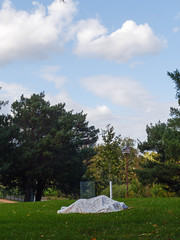representation
caryn74
ah, the fluttering black hair of a girl from Idumo,
where many clouds rise up,
floats in the midst of the Yosimu-river.
(From the Man’yoshu, the Collection of Ten Thousand Leaves)
This, I understand, is a rather pale translation of the original 8th century poem. The poet—and the readers of these poems—shared an ancient literary tradition which allowed them to appreciate a deeper meaning hidden within the words. That tradition includes the use of makura kotoba, which translates as ‘pillow words.’
Take, for example, the phrase uti nabiku kurokami. Here it’s translated very simply as ‘fluttering black hair,’ but to the poet’s audience it meant so much more. Kurokami actually means ‘black god,’ but the term was often used to refer to a woman’s black hair, suggesting a deep spiritual connection between a woman’s hair and her beauty, and the power of that beauty over others. The phrase uti nabiku describes the subtle and sensual swaying of a field of grass in a gentle breeze. Those are the pillow words, the emotional cushion on which rests the description of the woman’s hair. So what we read as ‘fluttering black hair’ really refers to the complex emotions evoked by the abiding organic wonder of beauty in the natural world.
In this portrait of a lovely, ethereal woman we are drawn immediately to her eyes and the sweep of her hair, and it sparks in us an emotional response. But ours must be a pale translation of the response it generates in her husband, in the man who reaches out and actually touches her hair.
Blog photograph copyrighted to the photographer and used with permission by utata.org. All photographs used on utata.org are stored on flickr.com and are obtained via the flickr API. Text is copyrighted to the author, greg fallis and is used with permission by utata.org. Please see Show and Share Your Work








